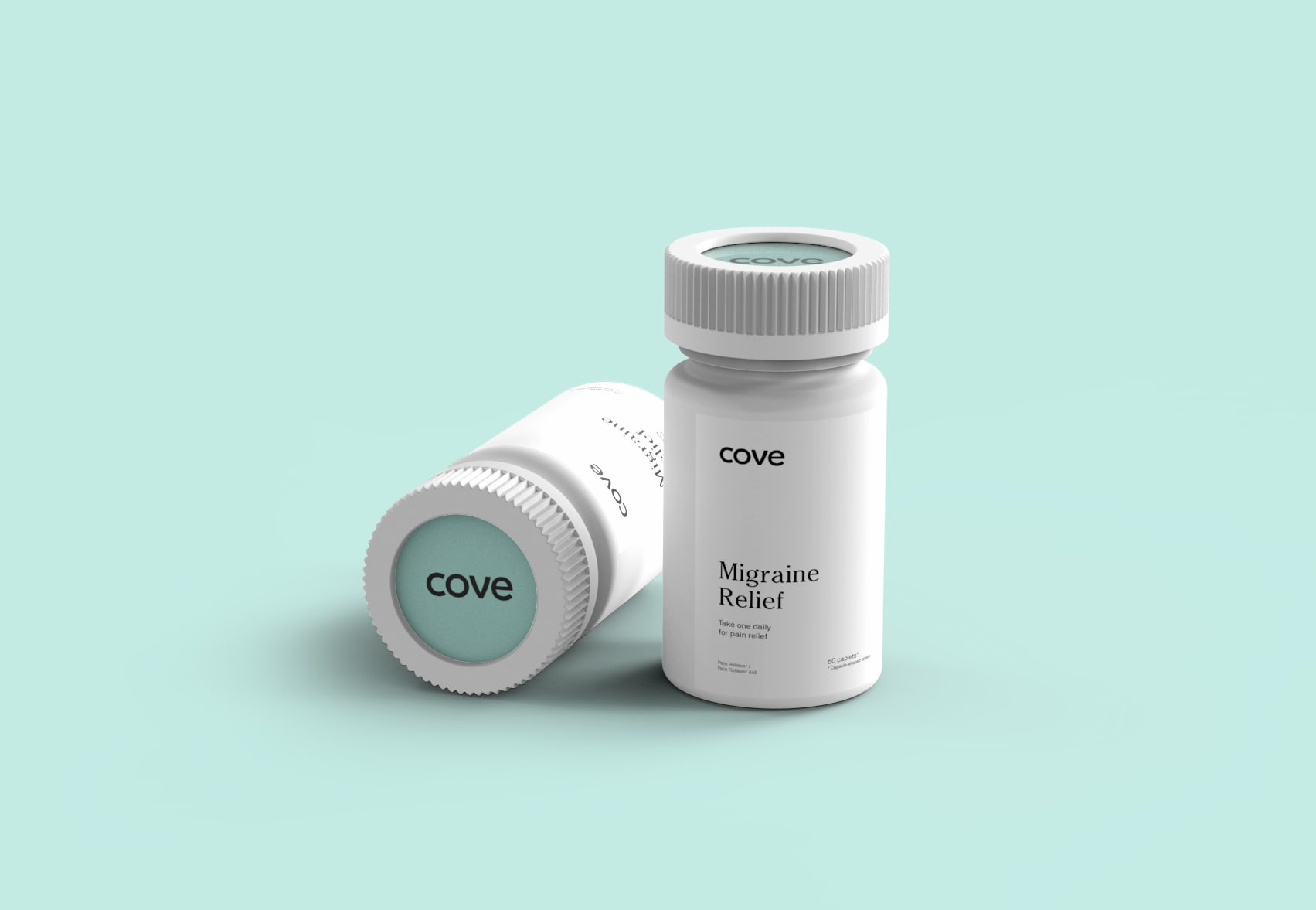There’s nothing more frustrating than being told to "take a painkiller and drink a glass of water” when you're experiencing a migraine attack. After all, if it was that simple, you probably wouldn’t be here.
We know that finding the right migraine treatment takes time. There’s no quick fix and there's no one-size-fits-all solution. And what makes it even harder is that there's not a lot of information out there to help you figure it out.
That’s why Cove exists. Our mission is to make it easier for migraine sufferers to get ongoing support and access to the care they need. And that's why we're breaking down the most common migraine treatments and explaining them to you in a language that actually makes sense. So let’s talk about anticonvulsant medications, a preventive treatment that’s been proven to work for migraine headaches.
What are anticonvulsant drugs and how do they treat migraine?
As you might know (or suspect), anticonvulsants are a prescription medication that’s most commonly prescribed for the treatment of epilepsy. However, the anti-epileptic drug also helps prevent migraine attacks.
While it’s not entirely understood why that’s the case, some researchers believe epilepsy and migraine share some of the same traits.
There are two types of anticonvulsants used to treat migraine:
- sodium valproate (Depakote® and Depakote® ER)
- topiramate (Topamax®, Topiragen®, Qudexy DR®, and Trokendi®-XR2)
How long do they take to start working?
Anticonvulsants are preventive medication, which means it takes about one to two months for them to start working to prevent attacks (as opposed to acute medication like triptans and NSAIDs which begin working to relieve migraine pain within two hours).
According to the NIH, an anticonvulsant can be considered successful if your migraine frequency is reduced by 50%. (This is why using migraine tracking tools is so important.)
You might be doing the 50% math now and thinking that you'd like that number to be much closer to 100%. We wish that was the case, too. But until science finds a cure that prevents migraine attacks 100% of the time, we recommend speaking to your medical provider about combining your preventive treatment with acute treatment.
How do you take anticonvulsants?
You should take your anticonvulsant daily with water, with or without food. The daily dosage varies by person, so make sure to ask your medical provider what’s right for you and then it as prescribed.
Who should take anticonvulsants for migraine prevention?
Anticonvulsants are a good treatment option for migraine sufferers who suffer from several attacks a month, who need additional treatment support beyond acute medication, or who can’t take acute treatment at all.
Who shouldn't take anticonvulsants for migraine prevention?
While anticonvulsants are generally considered safe and effective, there are people who should consider other migraine treatments. Namely:
- People are currently using certain types of birth control (some anticonvulsants might prevent the birth control from working)
- People who are pregnant or planning to become pregnant
- People who haven't tried any acute migraine treatments before
That said, everyone’s different and we recommend speaking with your medical provider about your specific needs and concerns. (We know, you’d prefer to get all the answers now, but were committed to providing you with the best migraine care, and in this case, that means not making any claims we can’t stand by.)
What are common anticonvulsant side effects?
While anticonvulsants are generally considered safe, like many medications, there are possible side effects. The most common ones are:
- attention issues
- drowsiness and fatigue
- kidney stones
- nausea
- tingling
- weight loss
Note that you cannot abruptly stop taking anticonvulsants as it puts you at risk of having rebound seizures. So talk to your medical provider before decreasing your usage.
You should immediately contact your medical provider if you experience signs of serious allergic reaction, dizziness, or difficulty breathing while taking these medications.
How do you choose which anticonvulsant to take?
Weighing Depakote® (a.k.a. Epilim®) vs. Topamax®? They’re both effective migraine prevention treatments, but they do have different side effects. Depakote® can cause hair thinning, nausea, tremors, and weight gain. You also shouldn’t take Depakote® if you’re considering getting pregnant, because it can cause birth defects.
That’s not to say that Topamax® (a.k.a. topiramate) doesn’t have side effects. Its side effects can include numbness, tingling, difficulty finding your words, and, in some cases, weight loss.
Reading through these two descriptions might feel like you have to pick the lesser of the two evils. Dr. Philip Bain, a headache expert and Cove medical advisor, says it’s important to note that these side effects “are seen more at the doses that are used for seizures (e.g. 500–2000 mg daily) than those producing benefit for migraine headache (usually 250–1000 mg max).”
Since migraine is so personal, it’s difficult to know in advance what medication will work best for you. Discuss your options with your medical provider, make the best choice you can, and don’t be afraid to make changes if something doesn’t feel right.
Which anticonvulsant does Cove offer?
Cove currently offers topiramate, which is considered to be the most effective FDA-approved anticonvulsant for migraine treatment.
We know this can feel like a lot of information and you may still have questions. That’s why we work with licensed physicians to help each and every person find a treatment that'll actually work for them (and provide ongoing support for as long as you need it). If you’d like to speak to a Cove physician about your headaches, simply click here.
If you'd like to keep exploring your options, we recommend reading about other migraine treatments: triptans, NSAIDs, beta blockers, anti-CGRPs, and antidepressants.
The information provided in this article is not a substitute for professional medical advice, diagnosis, or treatment. You should not rely upon the content provided in this article for specific medical advice. If you have any questions or concerns, please talk to your medical provider.
Topiramate is an oral medications used used to prevent migraine headaches. Call your doctor right away if you have a fever or you do not sweat during activities or in warm temperatures. Patients who take this drug may be at a greater risk of having thoughts or actions of suicide. The risk may be greater in people who have had these thoughts or actions in the past. Call the doctor right away if signs like low mood (depression), nervousness, restlessness, grouchiness, panic attacks, or changes in mood or actions are new or worse. Call the doctor right away if any thoughts or actions of suicide occur. Very bad and sometimes deadly liver problems have happened with this drug. Call your doctor right away if you have signs of liver problems like dark urine, feeling tired, not hungry, upset stomach or stomach pain, light-colored stools, throwing up, or yellow skin or eyes. This drug may cause very bad eye problems. If left untreated, this can lead to lasting eyesight loss.
If you would like to learn more about topiramate, please see the full prescription information here. You are encouraged to report negative side effects of prescription drugs to the FDA. Visit MedWatch: https://www.fda.gov/Safety/MedWatch/default.htm or call 1-800-FDA-1088.
If you’re experiencing a mental health crisis, please call 911 or go to your nearest emergency department. If you are contemplating suicide, call 911 or call/text the National Suicide and Crisis Lifeline at 988. These services are available 24/7.
Photo by Frank Park on Unsplash.


